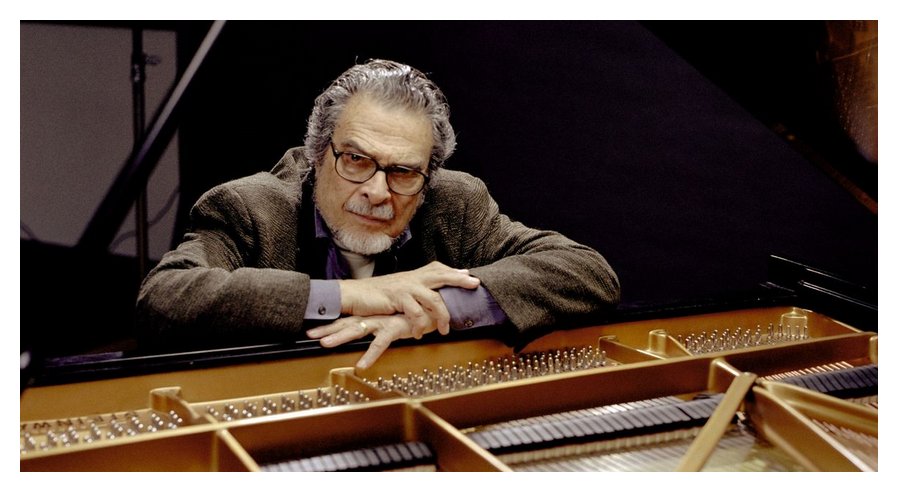

|
Leon Fleisher
Andrew W. Mellon Chair in Piano As a recipient of the Kennedy Center Honors in 2007, pianist Leon Fleisher was recognized as a "consummate musician whose career is a testament to the life-affirming power of art." The child prodigy [born July 23, 1928] began to study the piano at the age of 4 and by the age of 9, the legendary Artur Schnabel invited him to be his student, first in Lake Como, Italy, and then in New York, where Mr. Schnabel nurtured and inspired the young Fleisher for the next 10 years as he evolved into one of the great music masters of our time. Leon Fleisher made his debut with the New York Philharmonic, conducted by Pierre Monteux, when he was 16 years old. Maître Monteux called him "the pianistic find of the century." Mr. Fleisher went on to international renown, becoming the first American to win the prestigious Queen Elisabeth of Belgium Competition in Brussels in 1952. He subsequently enjoyed a prolific recording career, most notably with George Szell and the Cleveland Orchestra, recordings recognized as among the great collaborations in the concerto repertoire. In 1965, before a scheduled tour of Russia with the Cleveland Orchestra, Leon Fleisher began to suffer symptoms of a debilitating condition of his right hand, later diagnosed as focal dystonia, a neurological condition that causes the fingers to curl into the palm of the hand. After a period of great despair, Mr. Fleisher channeled his creativity in new directions, mastering the piano repertoire for left hand and initiating a career in conducting. He renewed his dedication to teaching at Peabody, where he has been the inspiration to hundreds of students since 1959. Leon Fleisher holds the Andrew W. Mellon Chair at the Peabody Institute of the Johns Hopkins University. As a teacher, he has carried on a tradition that descends directly from Beethoven himself, handed down generationally through Carl Czerny, Theodor Leschititsky, Artur Schnabel, and Leon Fleisher himself. In the mid-'90s, with the combined therapies of Botox injections and Rolfing, he regained sufficient use of his right hand, leading to an extraordinary career renaissance. In 2003, Mr. Fleisher joined forces with his wife, pianist Katherine Jacobson, to form the Fleisher-Jacobson Duo, giving concerts world-wide and recording for Sony Classical. Leon Fleisher released the album Two Hands in 2004, which went on to hold a Top 5 Billboard Chart position and was hailed by critics as one of the best recordings of the year. Two Hands is also the title of the Oscar nominated documentary film about his amazing life story. 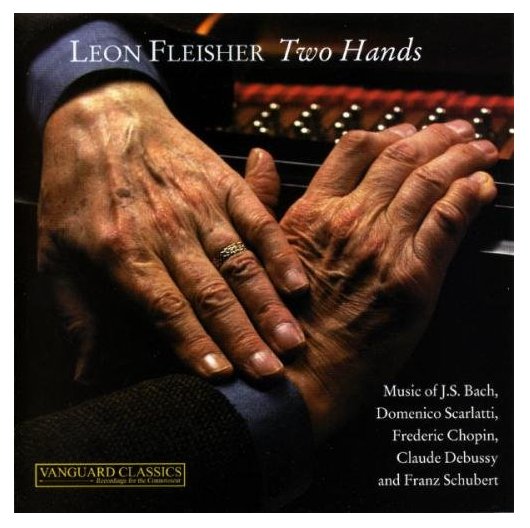
In 2013, Sony Classical issued a 23-CD box set of his entire recorded output, and in 2014, Fleisher released his first solo CD in a decade, the Grammy nominated All The Things You Are. In 2006, in Paris, Leon Fleisher received the honor of Commander in the Order of Arts and Letters by the Minister of Culture of the French government. At age 86, in addition to his teaching at Peabody, Mr. Fleisher continues with an international schedule of master classes, performances, and orchestral guest conducting. -- Yury Shadrin, assistant to
Leon Fleisher [Text only - birth date and photos added]
[Posted on the website of the Peobody Institute of Johns Hopkins University] |
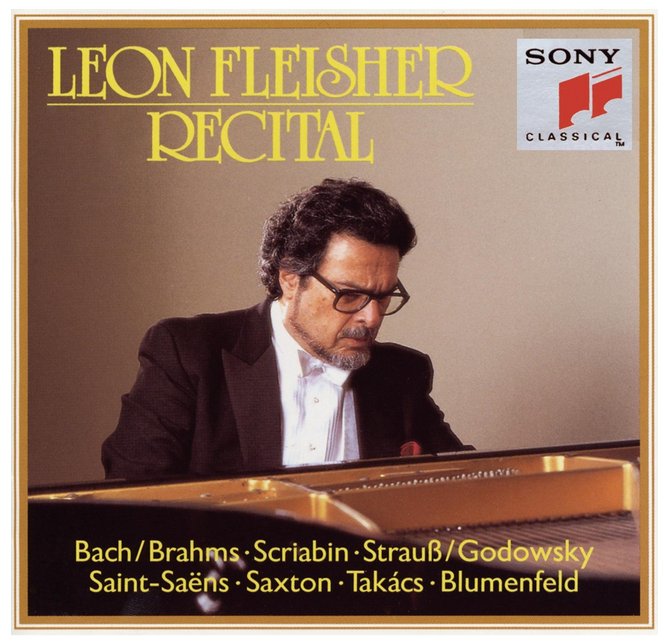 BD: Are you going to wind up looking like Rigoletto,
with a little hunch on the back?
BD: Are you going to wind up looking like Rigoletto,
with a little hunch on the back?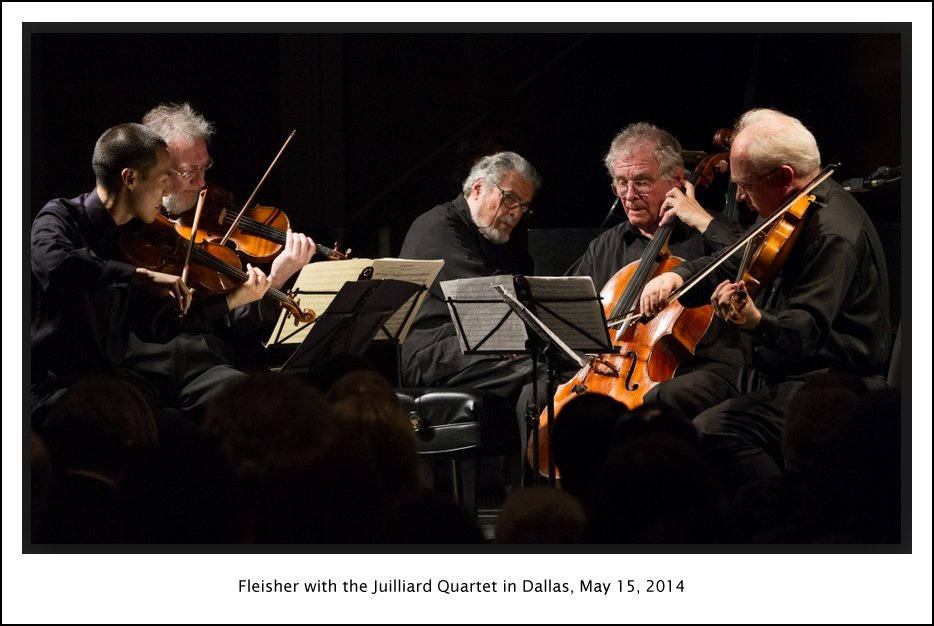
MUSIC REVIEW;Left-Handed Concertos Are a Match By ALEX ROSS Published: April 30, 1996 in The New York Times While showing welcome interest in new music, the classical music business seems to be trying to eliminate the composer from the process. We've had operas by rock stars, oratorios by committee, even an opera ostensibly composed by a librettist. So it is good to report that when the Baltimore Symphony played three works by William Bolcom at Carnegie Hall on Sunday, the composer took center stage. Thanks to a highly irregular commissioning request, Mr. Bolcom was able to show off the true virtuosity of the art of composition, and received a virtuoso's applause. The premise for "Gaea," a sequence of three piano concertos, might easily have devolved into a gimmick. David Zinman, the director of the Baltimore Symphony, wished to increase the repertory for Gary Graffman and Leon Fleisher, two pianists beset by hand problems. (Mr. Fleisher has since resumed two-handed playing.) Remembering Milhaud's two quartets that overlap to form a single octet, the conductor commissioned two left-handed concertos that can also be played simultaneously as a two-piano super-concerto. Mr. Bolcom hesitated before undertaking this deliriously difficult task, as he testified in a program note. The two concertos had to sound full-bodied on their own, then fuse together without creating a noisy jumble. He further limited himself by avoiding the extravagant polyphonic effects of his earlier, more radical pieces. "Gaea" is set in a trim, refined Neo-Classical idiom, reminiscent of Milhaud and Hindemith, also with a touch of Messiaen in the sumptuous piano writing. I wonder if any composer could have managed it with complete conviction. Mr. Bolcom came very close. He created a distinctive chamber orchestra for each concerto: flutes, clarinets, trumpets, trombones and violas for the first, oboes, bassoons, horns and other strings for the second. The opening movement is scherzolike in Concerto No. 1, more solemn and expansive in No. 2. The second movement is, by turns, lugubrious and songful. The finale in both pieces is a set of quicksilver fugal variations on the notes G-A-E-A. (. . . ) |
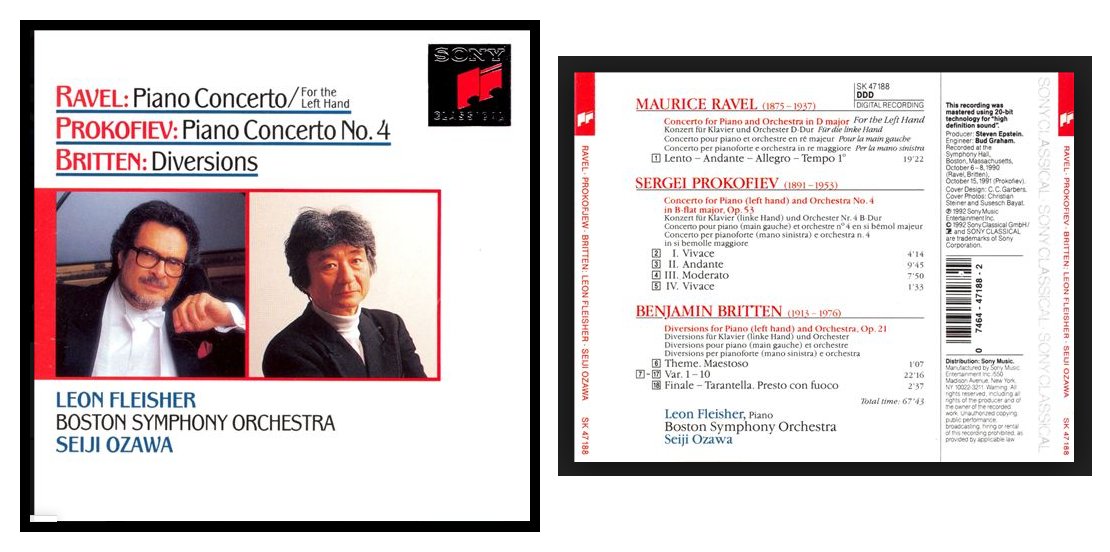
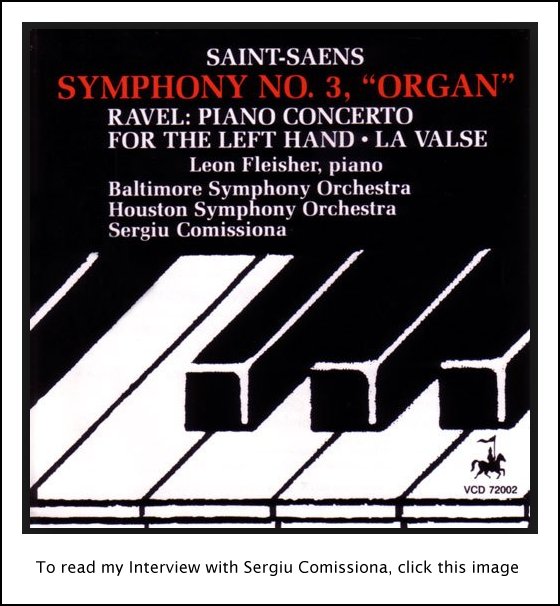 BD: And then the conductor gets purgatory?
BD: And then the conductor gets purgatory?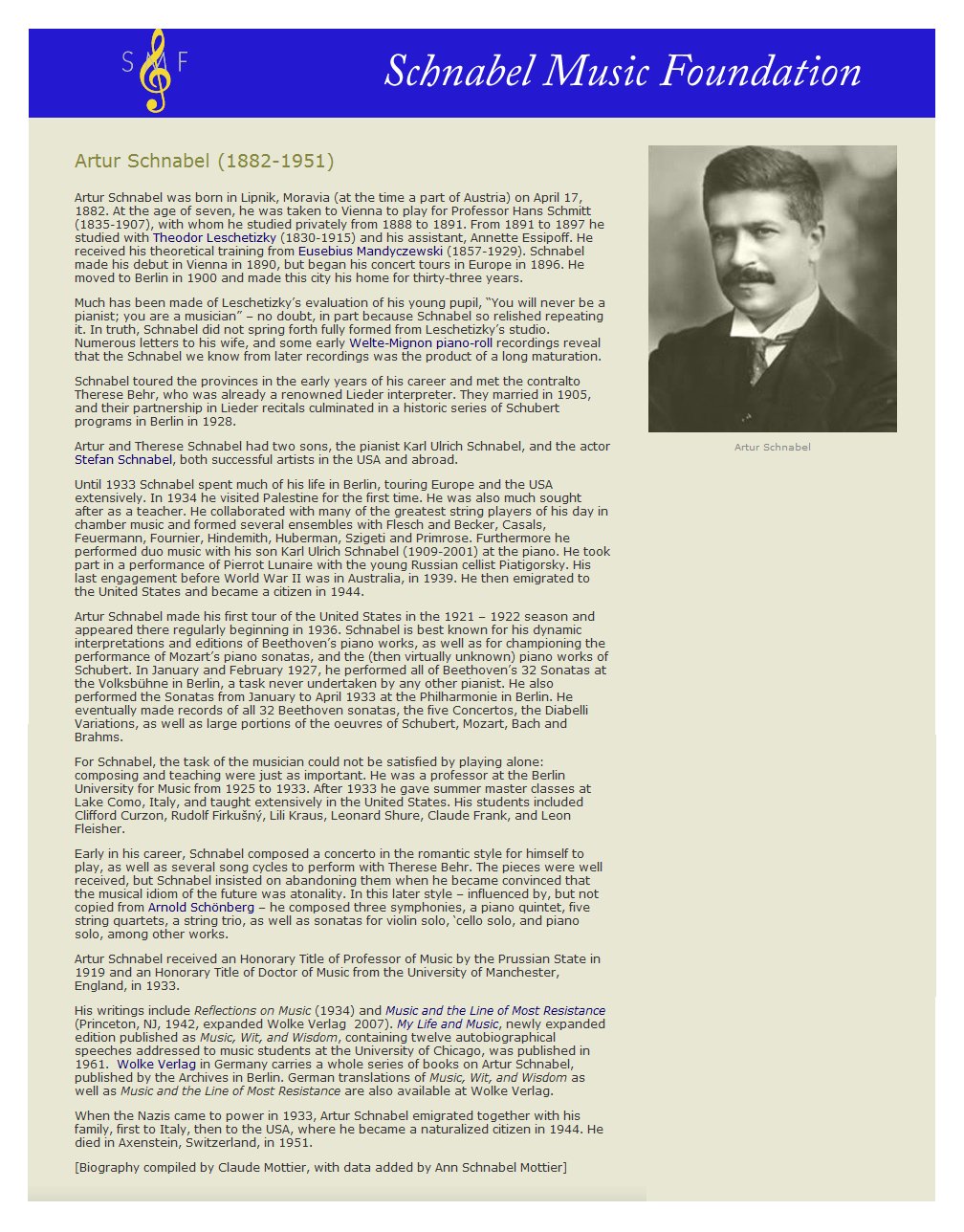
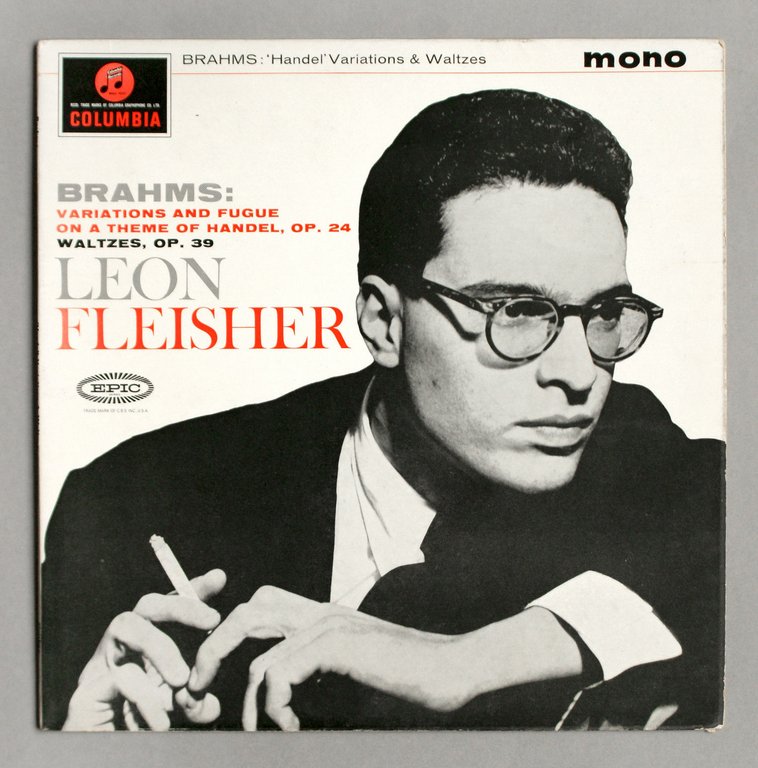 BD:
Let me ask about recordings. Do you play the same for the microphone
that you do for an audience?
BD:
Let me ask about recordings. Do you play the same for the microphone
that you do for an audience?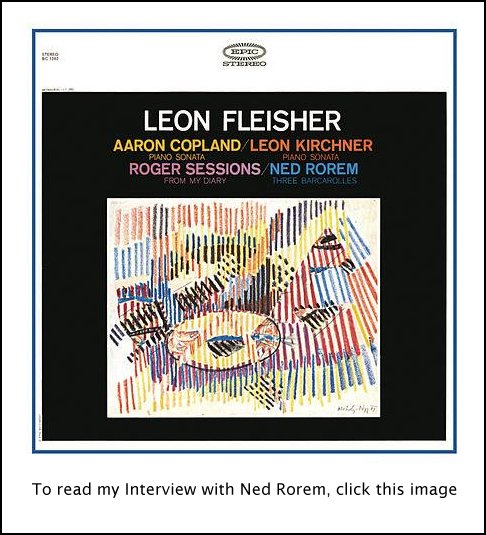 BD: You travel all over
the world, and each time you go someplace you encounter a new, or at least
a different, piano. How long does it take before that instrument is
your own?
BD: You travel all over
the world, and each time you go someplace you encounter a new, or at least
a different, piano. How long does it take before that instrument is
your own?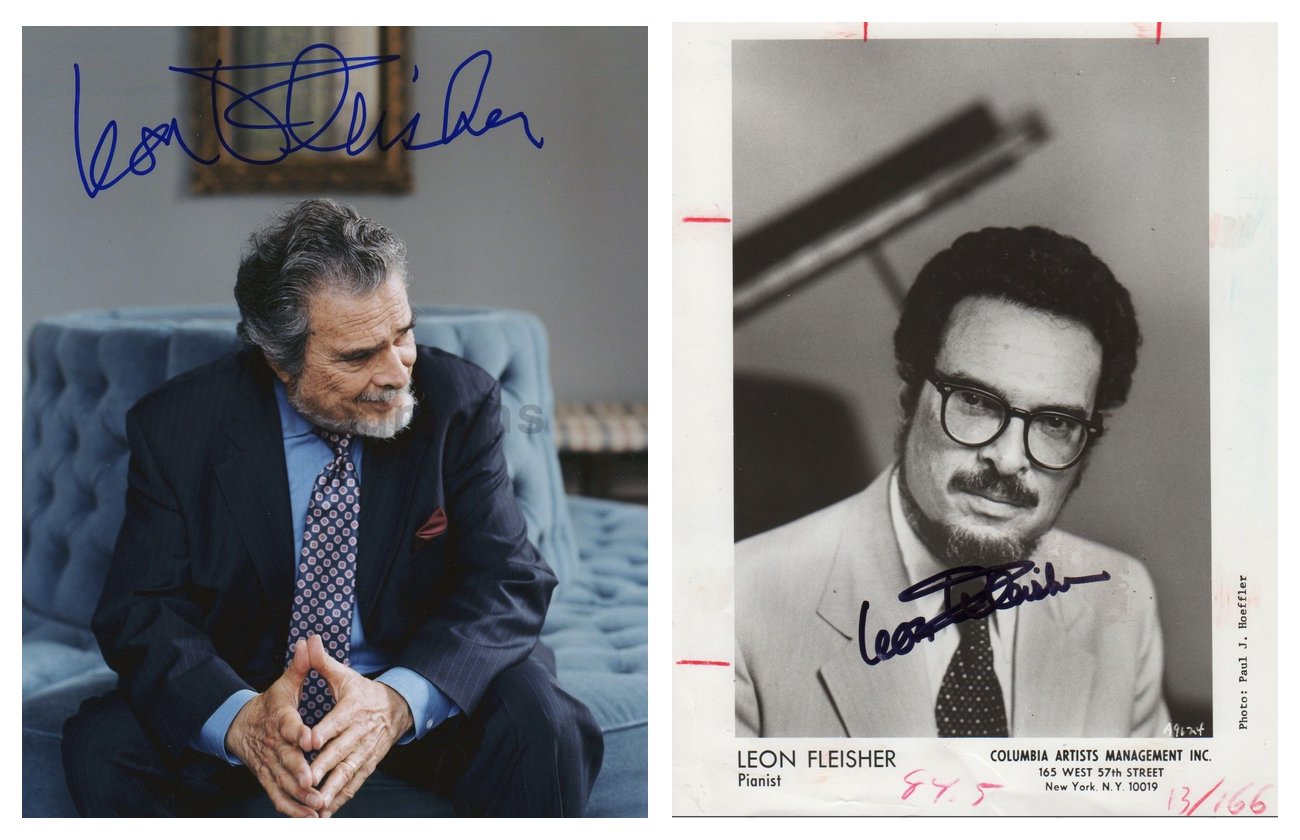
This conversation was recorded in Chicago on March 6, 1995.
Portions were broadcast on WNIB in 1998 and 2000; on WNUR in 2009, 2010 and
2016; and on Contemporary Classical Internet Radio in 2009. This transcription
was made in 2016, and posted on this website at that time.
To see a full list (with links) of interviews which have been transcribed and posted on this website, click here.
Award - winning broadcaster Bruce Duffie was with WNIB, Classical 97 in Chicago from 1975 until its final moment as a classical station in February of 2001. His interviews have also appeared in various magazines and journals since 1980, and he now continues his broadcast series on WNUR-FM, as well as on Contemporary Classical Internet Radio.
You are invited to visit his website for more information about his work, including selected transcripts of other interviews, plus a full list of his guests. He would also like to call your attention to the photos and information about his grandfather, who was a pioneer in the automotive field more than a century ago. You may also send him E-Mail with comments, questions and suggestions.